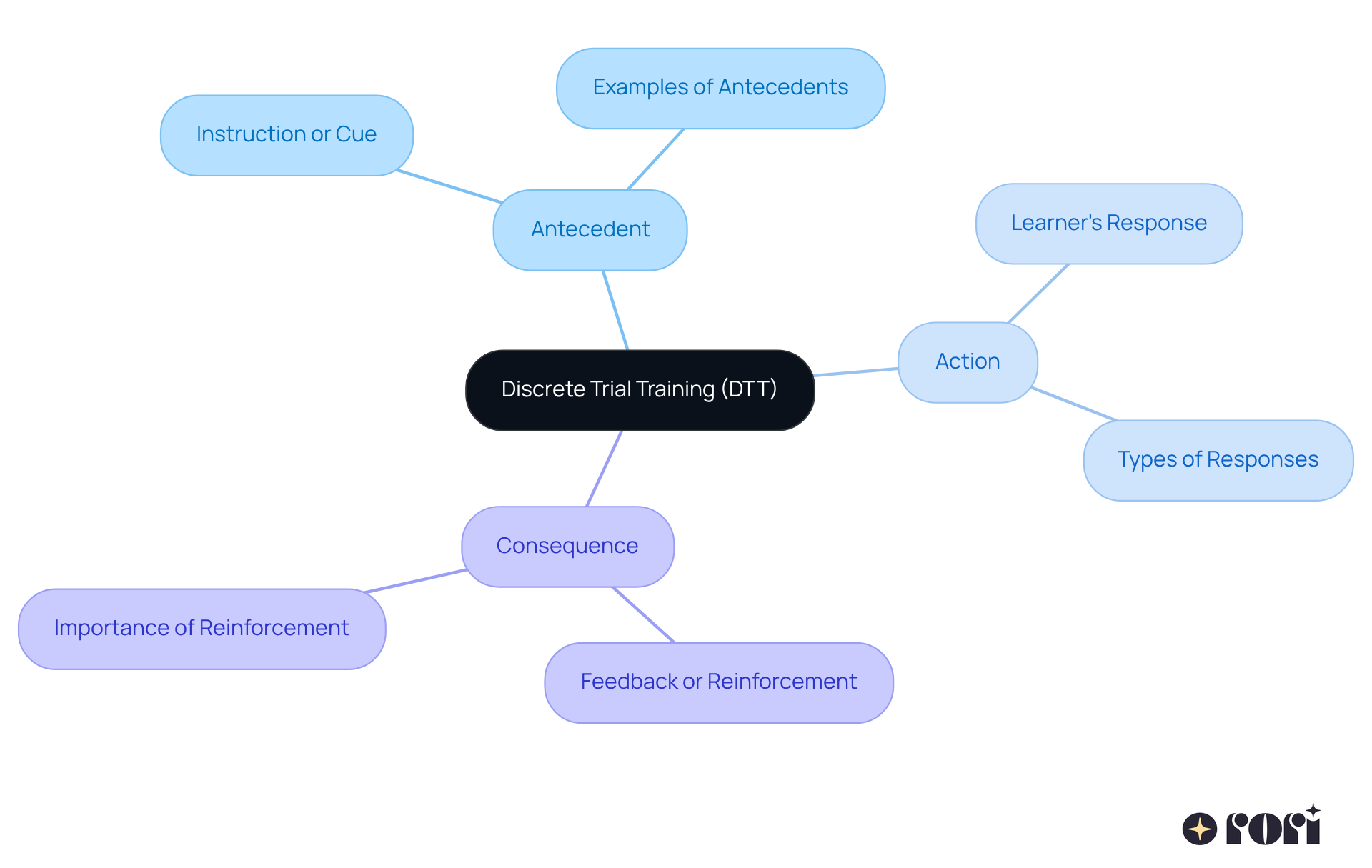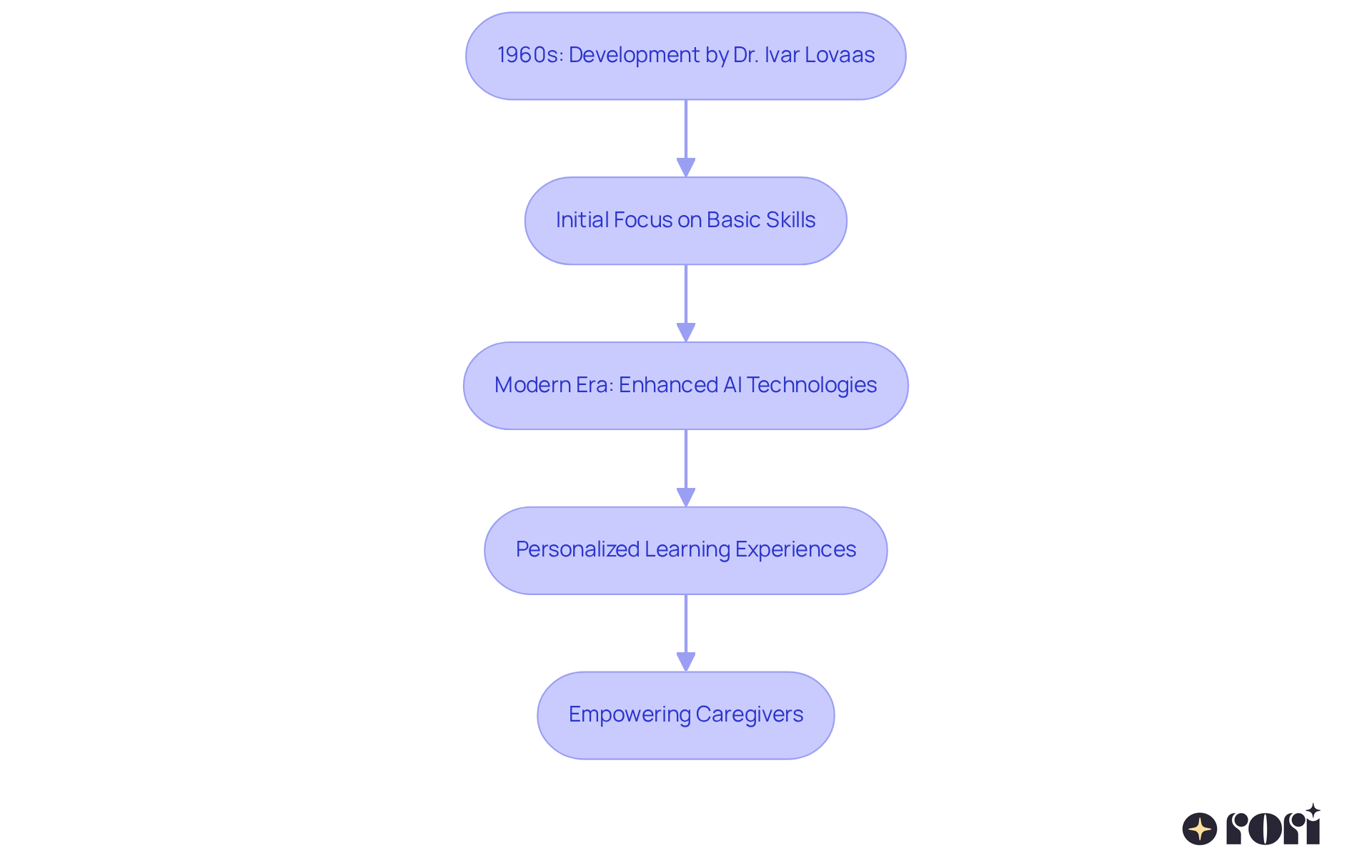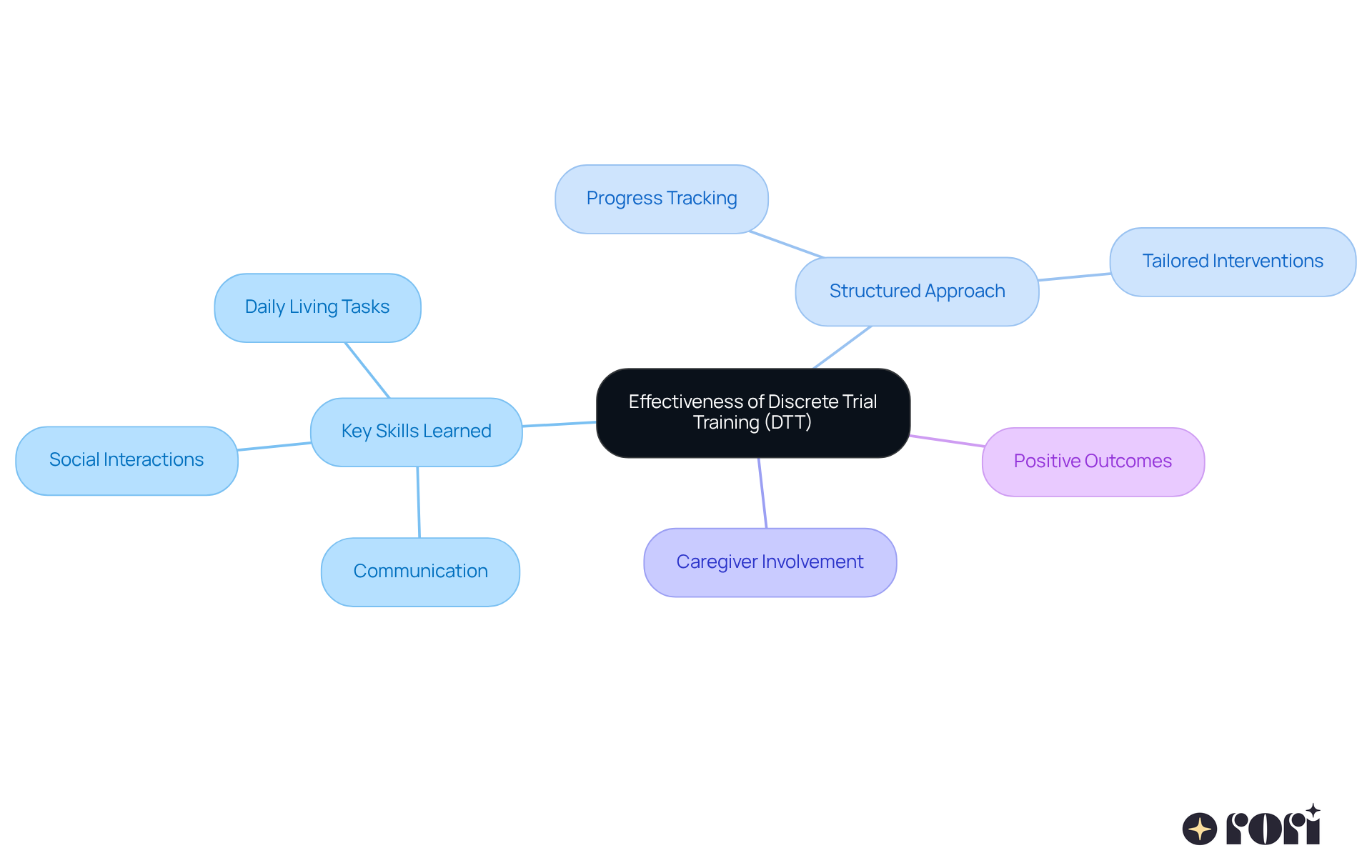Let’s talk about Discrete Trial Training (DTT) and why it’s such a big deal in Applied Behavior Analysis (ABA). This structured approach is all about teaching essential skills to individuals with autism, and it really makes a difference!
What’s great about DTT is how it breaks down learning into bite-sized pieces. This means that each step is manageable, making it easier for kids to grasp new concepts. Plus, when caregivers get involved, the progress can be truly amazing!
Imagine being able to tailor interventions specifically for your child’s needs. That’s the beauty of DTT! It’s not just a one-size-fits-all solution; it’s about finding what works best for your little one.
So, if you’re a parent navigating this journey, know that you’re not alone. We’re here to help you every step of the way! Let’s explore this together and see how DTT can support your child’s growth.
Understanding how children with autism learn and develop essential skills is so important for their growth and well-being. Discrete Trial Training (DTT) is a key part of Applied Behavior Analysis (ABA) that breaks down complex skills into manageable parts. This structured approach can lead to significant progress, which is something every parent hopes for!
But as parents and caregivers navigate the intricacies of this method, questions often pop up:
Exploring these aspects not only highlights the importance of DTT in fostering learning but also shows its potential to transform lives.
Let’s dive into this together! We’re here to help you every step of the way!
Discrete Trial Training (DTT) is a structured teaching approach used in Applied Behavior Analysis (ABA) that is defined by the discrete trial definition, which breaks down skills into small, manageable pieces. Each trial has three main parts:
This method allows for organized teaching and reinforcement of specific skills, making it especially helpful for young individuals with autism who thrive in clear, predictable learning environments.
Imagine a qualified behavior analyst crafting personalized plans just for your child! These plans include measurable goals and evidence-based strategies aimed at encouraging positive behavior changes and skill development. This approach is all about your child’s unique needs, ensuring that therapy adapts as they grow. It’s like having a tailored roadmap for their learning journey, with continuous assessment to keep up with their progress.
Did you know that ABA is the only scientifically validated therapy for autism that insurance covers? That’s a big deal! When the recommended hours are fully implemented with active caregiver involvement, about 90% of kids show significant progress. This really highlights the importance of early intensive behavioral intervention (EIBI) in boosting learning, verbal, and social skills for children with autism.
So, let’s explore this together! If you’re a parent navigating this journey, know that you’re not alone. We’re here to help you every step of the way!

Discrete Trial Training (DTT) has an interesting history! It was developed back in the 1960s by Dr. Ivar Lovaas at UCLA, aimed at helping young people with autism through early intensive behavioral intervention. Initially, it focused on teaching basic skills through repetition and reinforcement. Fast forward to today, and DTT has evolved quite a bit!
At Rori Care, we’re excited to use advanced AI technologies to make DTT even more accessible and effective for families. This means we can create personalized learning experiences that cater to each child’s unique needs. Isn’t that amazing?
These days, DTT isn’t just about skill development; it’s also about helping kids apply what they’ve learned in different situations. We believe in empowering caregivers by providing them with essential tools and strategies. This way, they can actively support their children’s behavioral goals, making informed decisions and engaging in the process.
Let’s explore this together! We’re here to help you every step of the way!

Let’s dive into the key components of the discrete trial definition in Discrete Trial Training (DTT)! 🌟 First up, we have the Antecedent. This is the instruction or cue given to the learner, setting the stage for what’s expected next. Then comes the Behavior—the response from the learner, which could be a verbal or physical action. Finally, we have the Consequence. This is the feedback provided after the behavior, which can be positive reinforcement for correct responses or corrective feedback for those that miss the mark.
DTT is a well-organized and methodical approach that often involves repeated attempts to strengthen understanding and ensure proficiency in skills. It’s part of a broader framework known as Applied Behavior Analysis Therapy, which is all about being patient-centered and adaptable. This means it focuses on the unique needs of each individual, making it a great fit for many families.
Through personalized planning and measurable goals, behavior analysts use evidence-driven techniques to assess and adjust interventions based on progress reports and caregiver involvement. This way, they can ensure successful outcomes in enhancing learning, verbal, and social skills for individuals with autism.
We’re here to help you every step of the way! If you have any questions or want to share your experiences, feel free to reach out. Let’s explore this together!

You know, studies have shown that the discrete trial definition in Discrete Trial Training (DTT) really works wonders for kids with autism. It helps them learn important skills like communication, social interactions, and even daily living tasks. Isn’t that amazing? Kids who go through DTT often show significant progress compared to those who don’t.
The structured approach of DTT exemplifies the discrete trial definition that makes it so effective. It allows clinicians to track progress closely and tweak interventions to fit each child's unique needs. Plus, the positive reinforcement used in DTT keeps kids motivated and engaged, which is why many practitioners in ABA love it!
At Rori Care, we believe in the power of informed caregiver involvement. By sharing ABA principles and strategies with parents, we boost the effectiveness of DTT even more. When caregivers are involved, it leads to better behavioral outcomes and supports developmental goals.
This teamwork not only enhances professional interventions but also creates a nurturing environment at home. And that’s what truly benefits your child’s progress! Let’s explore this together and see how we can support your journey!

Discrete Trial Training (DTT) is such an important part of Applied Behavior Analysis (ABA). It breaks down skills into bite-sized pieces, making learning feel more manageable. This approach is a game-changer for children with autism, helping them develop essential skills while addressing their unique needs through personalized interventions. With clear instructions, active responses, and constructive feedback, DTT creates a predictable learning environment that really fosters growth and progress.
Throughout this article, we’ve explored some key aspects of DTT. We looked at its history, essential components, and how effective it can be. The structured nature of DTT, with its focus on antecedents, behaviors, and consequences, allows for careful tracking of progress and tailored interventions. Plus, when caregivers get involved, it really boosts the impact of DTT, leading to better behavioral outcomes and a supportive home environment.
In summary, we can’t underestimate the significance of Discrete Trial Training in ABA. It’s a scientifically validated method that empowers children with autism by equipping them with vital skills. It also encourages collaboration between professionals and families. Embracing DTT not only leads to measurable success in learning outcomes but also highlights the importance of early intervention and active participation in the therapeutic journey.
So, let’s explore this together! Engaging with this approach can truly pave the way for a brighter future for children and their families. We’re here to help you every step of the way!
What is Discrete Trial Training (DTT) in Applied Behavior Analysis (ABA)?
Discrete Trial Training (DTT) is a structured teaching approach in ABA that breaks down skills into small, manageable pieces. It consists of three main parts: an antecedent (instruction or cue), an action (the learner’s response), and a consequence (feedback or reinforcement).
Who benefits most from Discrete Trial Training?
DTT is particularly helpful for young individuals with autism, as they thrive in clear and predictable learning environments.
How are personalized plans created in DTT?
Qualified behavior analysts create personalized plans that include measurable goals and evidence-based strategies tailored to the child's unique needs, ensuring that therapy adapts as they grow.
What is the significance of early intensive behavioral intervention (EIBI)?
Early intensive behavioral intervention (EIBI) is crucial for boosting learning, verbal, and social skills in children with autism, with about 90% of kids showing significant progress when recommended hours are fully implemented with active caregiver involvement.
Is ABA therapy covered by insurance?
Yes, ABA is the only scientifically validated therapy for autism that is typically covered by insurance.